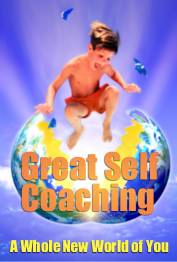
Last week, I posted an image similar to the one above, with a physician telling a patient to make too many changes in too short a time, on our Facebook Page.
I commented on that post that effective coaches would know why the patient pictured was unlikely to do any of it. A page member asked for details, so here you go.
Virtually everything a coach does during a coaching session is designed to help the client gain awareness and then take action toward a goal the client wants to reach.
Everything. We don't always talk about it that way, but that's what it all boils down to. So if you want to help someone make changes, learn to use the tools below. They are effective in coaching and can be effective in other situations, as well.
A short list of tools coaches use to get clients into action...
- Acknowledge where they are, right now. In positive psychology coaching, this falls under the banner of Active and Constructive Responding. This strengthens relationships, reduces resistance, and causes people to feel more receptive to ideas and suggestions.
- Raise the positivity level sufficiently. People are more open, creative, and resourceful when there is sufficient, but not excessive, positivity in the conversation. They tend to feel more confident about trying new things and making changes.
- Ask instead of tell. Find out more about where the client is, right now, and what they want to change. People are always more likely to act on their ideas than on yours.
- Focus on assets. No need to ignore problems; just don't make the problems bigger or more important that the client and their assets. These include the client's strengths, their support system, having enough time and money, etc.
- Let the client lead. This is big. We sometimes think we know what the client needs to change, but that's less helpful than you might imagine. The client is always the expert when it comes to their own life, so let them take the lead.
- Create a brand new habitat. The client's old world supports their old way of being. To really change, they need their world to change with them. Create a habitat that evolves them in the direction they want to go.
- Don't expect action right away. Sometimes a client isn't even close to being ready. According to James Prochaska, people go through "stages of change" and there are three stages before they even get to action. Those stages include Precontemplation, which is probably where the patient above is, when they haven't even been thinking about changing, or they may feel resistant because somebody is pushing them to change (Their doctor? Spouse? Friends?), or they feel discouraged because they've tried to change and weren't successful. Then there's Contemplation, where they're thinking about changes, maybe even researching them, but aren't ready to act, yet. You may hear a lot of "shoulds" at this stage. Finally there's Preparation, when they're making necessary plans to set themselves up for success, such as changing their schedule, notifying other stake holders of the change, learning new techniques, or gathering equipment. Only after all that is someone able to actively change and, even then, they probably can't change everything at once. Getting a client ready to change is part of coaching them to change.
So jumping in with "good" advice, and expecting that to do the trick, could do more harm than good.
If you're curious about coaching or contemplating becoming one, download the free Become a Coach eBook. If you want to learn more, or are ready to take action, consider joining the Certified Competent Coach Course:













 Guest post by David Papini.
Guest post by David Papini.




